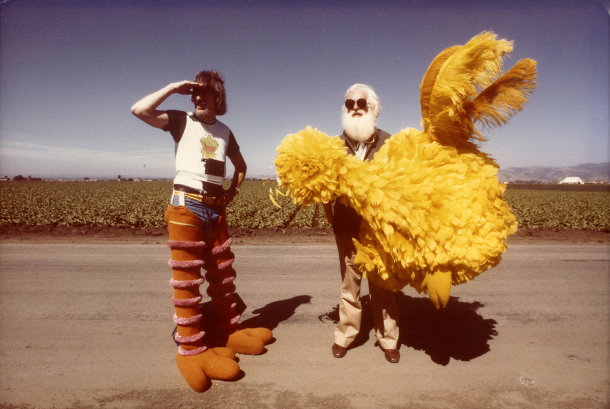
Cast: Bérénice Bejo, Tahar Rahim, Ali Mosaffa
Director: Asghar Farhadi
Country: France | Iran
Genre: Drama
Official Trailer: Here
In his latest film, made in France, Iranian filmmaker Asghar Farhadi presents a clinical exploration of the seemingly simplest and most harmless omission, utterance, or turn of the head to capture the labyrinth that is human communication, its ethical lining, and hence its moral repercussions. In this narrative of a man and a woman finalising their divorce, Farhadi constructs such a breathtakingly elaborate chain of mis/understanding, confrontation, and imagination that ripples out to collide with multiple layers of events that are in the end intimately and irrevocably connected.
Iranian filmmaker Asghar Farhadi presents a clinical exploration of the seemingly simplest and most harmless omission, utterance, or turn of the head to capture the labyrinth that is human communication, its ethical lining, and hence its moral repercussions.
One can thus approach Le Passé as a complementary work to Farhadi’s previous film A Separation (2011). But while the two films share themes, Le Passé is anything but a repetition of A Separation. One, in the sense that we are dealing with a reconstituted family unit—or family units— as opposed to a sole tribal family structure that encompasses several generations: Marie-Anne (Bérénice Bejo) and Ahmad (Ali Mosaffa) reunite to finalise their divorce, but the latter also reacquaints himself with his stepdaughters and friends, as well as discover Marie-Anne’s fiancé Samir (Tahar Rahim), his son, and his own troubled family situation. Yet only gradually do we learn the nature of these relationships, often going against expectations and what one sees on-screen. Two, in the sense that this film unfolds meditatively, calmly, and with nearly silent trepidation and disquiet, as opposed to a strong rushing vocalised stream that takes everyone into every avenue of conflict with pure emotion and feeling. Le Passé is more about attempts to prevent such an affective bursting of the dam, following the onslaught of feeling that had already happened but whose impact is being felt and discovered only now, with the arrival of Ahmad. What is more, all of the characters often speak in almost hushed tones, especially Samir, even in the face of heightened emotion. The result is that such unlikely quietness and softness make the scenes all the more charged and compelling in its mystery. Of course, like A Separation, the same intense degree of anxiety, drama, and power grip the spectator, unwittingly sucking the spectator into its affective matrix of secrets, imaginings, desires, and resentments.

Farhadi establishes the theme of communication and secrecy, as well as the idea of limits to knowledge no matter how deeply one delves into something that happened, immediately in the opening scene. Upon Ahmad’s arrival at the airport where Marie-Anne greets him, they communicate through glass walls, without the spectator being made privy to their dialogue. In fact, instances of characters communicating with each other, however briefly, without being heard on the soundtrack either because of diegetic sounds overpowering their voices or of structures that allow them to be seen but not heard, crop up in various parts of the film. In the closing scene, Samir visits his wife Céline, who is in a coma, and tries to trigger a reaction from her by putting on cologne that she likes. Through a half-whispered line to her ear and a close-up of their hands, Farhadi shows an aspect of their relationship that had been intentionally absent throughout the film. Essentially, the film is about tracing how Ahmad and Marie-Anne are connected to Samir and Céline, to which the introductory and concluding segments of the film allude. Silence, too, is employed with great effect, sometimes even bringing a bit of comedy with it, as in the scene when Marie-Anne leaves Samir and Ahmad sitting across each other at the kitchen table, saying nothing and thereby conveying all of the awkwardness and tension felt by both men for different reasons.
Farhadi is so magnificently adept at creating an insular world in which characters implode through situations that expose so blatantly their vulnerability and darkness.
Farhadi is so magnificently adept at creating an insular world in which characters implode through situations that expose so blatantly their vulnerability and darkness. He creates his worlds and characters not with one sweeping gesture that would proclaim its drama with trumpets here, but rather with a string of subtle gestures, with some of the most mundane decisions or lines becoming under Farhadi’s clinical camera and mind unearthed seeds of deeper, more manifold web of events, relationships, and revelations.
Some of the revelations are uttered in a whisper, requiring the spectator to commit absolutely to his/her spectatorship, lest s/he skip a beat. On this note, Ahmad is the core character of the narrative unraveling of situations and revelations, the conduit of communication and links, the fulcrum of quiet and loud, for the film begins with his arrival and concludes with his departure. Farhadi’s construction of Ahmad is a stunning display of the simultaneous simplicity and complexity of his dialogue and immense control of any given scene’s emotional colouring. Provided with such profoundly intricate characters, the cast is absolutely impeccable, each one performing like a solitary taut violin string ready to break at any moment.
Farhadi makes one hard-pressed to think of a more lucid film about human communication, fallibility, and fragility. Yet despite the great detail in which Farhadi cracks open an event, he manages at the same time to maintain an unsettling level of ambiguity when it comes to knowledge, intention, and perception, elements that are nothing short of what constitutes vision, interpretation, and, yes, cinema.
[notification type=”star”]100/100 ~ MASTERFUL. Farhadi makes one hard-pressed to think of a more lucid film about human communication, fallibility, and fragility. Yet despite the great detail in which Farhadi cracks open an event, he manages at the same time to maintain an unsettling level of ambiguity when it comes to knowledge, intention, and perception, elements that are nothing short of what constitutes vision, interpretation, and, yes, cinema.[/notification]



